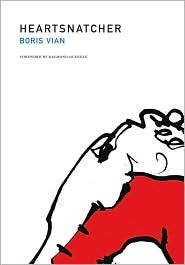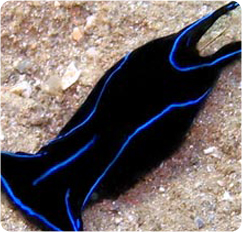“Novembruary, the cold, spitgrey, drizzleridden, fogeared month. Novembruary rain can cause all sorts of damage in all sorts of places. It can furrow through the fields, flaunch the furrows into ravines, and carry off the enraptured ravens. Or it can suddenly freeze.”
In descriptions s o richly imagined that he sometimes has to invent new words, French author Boris Vian brings to life the strange world discovered by a wandering traveler, Timortis, a psychiatrist who wants to “psychiatrize.” Timortis has been born an adult and has no memories of his own. An “empty vessel,” he believes that if he can learn everything there is to know about someone, he can bring about a transference of identity and make his own life more complete. He is wandering in search of people who will bare their souls and all their memories.
o richly imagined that he sometimes has to invent new words, French author Boris Vian brings to life the strange world discovered by a wandering traveler, Timortis, a psychiatrist who wants to “psychiatrize.” Timortis has been born an adult and has no memories of his own. An “empty vessel,” he believes that if he can learn everything there is to know about someone, he can bring about a transference of identity and make his own life more complete. He is wandering in search of people who will bare their souls and all their memories.
When he hears the cries of Clementine, a village woman giving birth to triplets, he stops to give aid and ends up delivering her sons–Noel, Joel, and Alfa Romeo. He is soon banished from the room, however, along with the woman’s husband, Angel, as Clementine decides that she, and she alone, knows what is best for her babies–she will raise the little prodigies herself.

Though much of the birthing scene is humorous, the full satirical flavor and the allegorical construction of this novel do not unfold until Timortis and Angel, sent out of the house, go into the village. There, Timortis discovers that he has arrived just in time for the Old Folks Fair, at which old people are auctioned off, and he observes a man, Ezekiel, buying an “old folk” for his kids to abuse-“Here you are, kids. Have fun with him.” The auctioneer, Gerry Mander, hits one of the old folks in the mouth and kicks another in the behind, while the others sit patiently waiting for their turn to be auctioned. Later Timortis visits a shop, where he sees a child being worked to the point of death, then splashed with icewater to revive him when he passes out. Farm animals are well treated, however, being given days off when they behave themselves and allowed to hitchhike when they need rides. Few readers will have any questions about the meaning of these early scenes, though some later scenes are more ambiguous.

This egg-shaped building in Japan is not a church, as it is in the novel.
A scarlet stream winds through the village, “pale red and opaque. Like poster paint.” Into this stream people throw their trash, including all dead bodies, and it is the job of a scapegoat, named Glory Hallelujah, to retrieve decaying things from the stream with his teeth. “I’ve got a house and I’ve got loads of gold-but I have to swallow the shame of the whole village for them. Remorse for everything wicked and evil they do. For every one of their vices.” He goes on to explain that “the first person to be more ashamed than I am takes my place. That’s the village tradition. They’re very religious here. They’ve got their consciences for themselves. But never any remorse.” When Timortis visits the egg-shaped church and meets the vicar, he discovers that the vicar does not want people to think of applying religion to everyday life. “God is not utilitarian. God is a birthday present..a luxury, a tasseled cushion made of beaten gold.”
Vian’s satire and offbeat humor continue unabated throughout the novel. A horse is crucified for his sexual depravity, women take off their clothes so they can be “psychoanalyzed,” Angel builds a boat and tells Timortis that it is “not a Maytree Ark,” and Noel, Joel, and Alfa Romeo grow quickly, looking for blue slugs so they can learn to fly. Additional bizarre episodes abound, leaving the reader to ponder the meaning of the non-stop action, at the same time that s/he is whisked along by the speed of Vian’s prose to new and still more surprising events. Puns, word play, and literary inventions fill the novel, even as Vian’s often lyrical sentences and vibrant descriptions set the scenes. One sentence, more than a page long, is a testament at least as much to Vian’s enthusiasm for his story as it is to his prodigious creativity.

Blue Velvet slug
Vian creates a whole new world here, satirizing the existing world for some of its most obvious faults, and presenting a remarkably open-ended allegory, which makes the reader think, at the same time that s/he often laughs at the absurdities and winces at the truths. But this is no full-blown alternative universe created to illustrate a serious and specific political or social agenda. Here Vian symbolically smiles at the reader as he leads Timortis through this strange community from episode to episode, illustrating his own opinions in a more or less random way, having fun all the time, while making some serious points. Not scholarly, though highly literate, this is a book for which one must buckle up, sit back, and just enjoy the ride.
A note about this edition : Boris Vian (1920 – 1959) wrote novels, poems, songs, and even screen plays, and was immensely popular among students in France in the 1950s. A writer, jazz musician, and former engineer, he published six novels, including this one in 1953, before his death at age 39 in 1959. His friends republished a number of his works in the 1960s, but he has remained largely unknown in the non-French-speaking world. Dalkey Archives Press, part of the non-profit Center for Book Culture, has just republished Heartsnatcher, Vian’s last novel, in an English translation by Stanley Chapman which truly does justice to the unique inventiveness of Vian’s prose. Dalkey Archives Press reprints rare or little-known works, “the finest works of world literature from the past 100 years.” Their intention is “to serve as a permanent home for these works, so that they will continue to be read by present and future generations.” Their reading list may be seen at www.dalkeyarchive.com.
Notes: The author’s photo appears on his Wiki page.
The egg-shaped building here, unlike the one in the novel is not a church. “It is in Banna Park on Ishigaki Island, Okinawa, Japan…a sanctuary for more than 2500 species of birds.” See http://architecture.about.com/od/weirdarchitecture
The blue slugs that Noel, Joel, and Alfa Romeo are looking for so they can learn to fly might have been these Blue Velvet Slugs. http://www.bluezooaquatics.com
